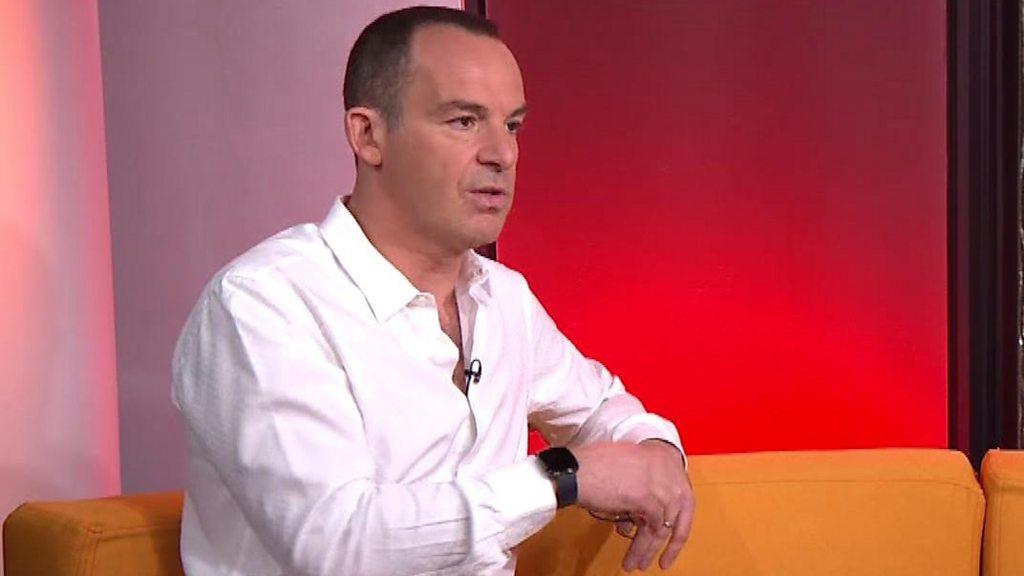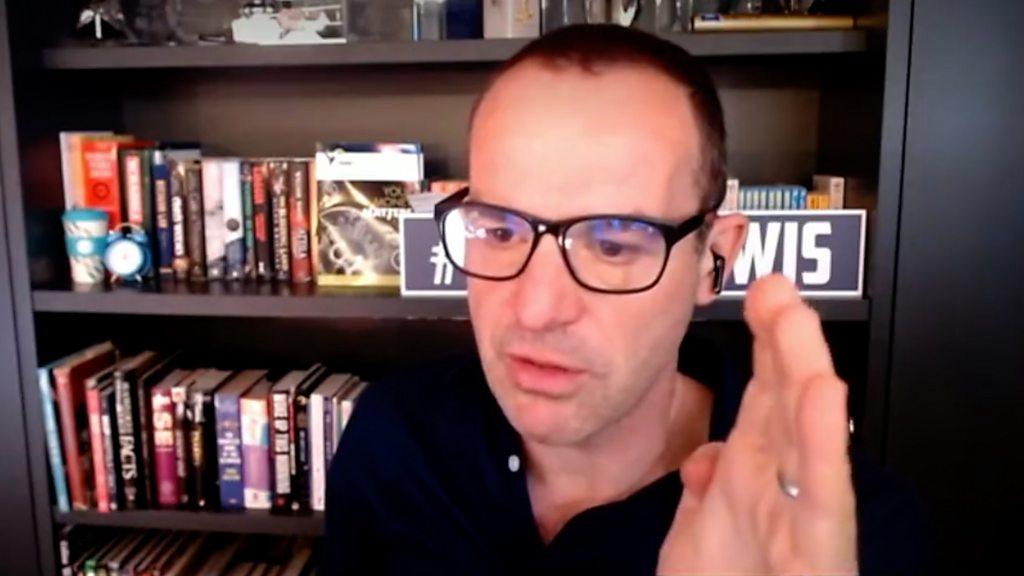Martin Lewis says he was rejected by House of Lords
- Published
Martin Lewis: I just got turned down for a peerage
Consumer champion Martin Lewis has revealed that he applied recently to become a member of the House of Lords but was turned down.
The founder of the Money Saving Expert website told the BBC's Nick Robinson he had been "honest" about not having enough time to attend many sittings.
He added that his "most important job" was looking after his nine-year-old daughter during early evenings.
Mr Lewis said he would be more ready for politics in a couple of years.
A spokesperson for the House of Lords Appointments Commission said appointments were "not determined on the basis of caring or family circumstances" and that "some very good candidates" were rejected.
In a wide-ranging interview for the Political Thinking with Nick Robinson podcast, Mr Lewis also spoke of how his nickname at the school - at which there were only two Jewish boys in his year - had been "Jew".
And he described Westminster's adversarial politics as "abominable" and in need of major reform to help the UK deal with future crises.

Martin Lewis's interview with Nick Robinson will be broadcast on BBC Radio 4 at 1730 BST on Saturday and will also be available on BBC Sounds and the Political Thinking website.

The 50-year-old revealed that, until his early thirties, he thought he would "go into politics at some point" and the "obvious thing" to do had been to run to become an MP.
"I was a pretty decent political speaker," he said, adding that he had been a member of the Liberal Democrats until the age of 24 and a "floating voter" since then.
Mr Lewis, who hosts ITV's the Martin Lewis Money Show, has been critical of the government over the cost-of-living crisis, calling for more intervention to help people on low and middle incomes as inflation soars.
"I never attacked the Tories," he told Nick Robinson. "I attacked the policies of the government."
Martin Lewis: I am rigidly not party political
He also said he would never take on a "polemic party job" in politics because "my mental health is not robust enough to deal with it and I wouldn't put my family through it".
But, when asked if he had ever wanted a peerage, Mr Lewis replied: "Yeah. I just got turned down again a couple of weeks ago, actually."
He revealed that he had been interviewed by the House of Lords Appointments Commission, external with a view to becoming a crossbench - or independent - peer.
"I did this really silly thing," he added. "I was honest in the interview...
"I said - because most of the time that the Lords sits about three till 10 [pm] on a Monday, Tuesday, Wednesday - 'Look, I need to be straight with you in terms of the hours I can give. I'm very busy with my job, but most importantly I have a nine-year-old daughter and until she's 13, my most important job from 6.30 until eight at night is to be with her and to put her to bed, maybe until she's 12, whatever'."
Mr Lewis said that this had proved to be "a stumbling block, although [the committee] have invited me to apply again in future".
"When I got the [rejection] letter, I breathed a sigh of relief because there's a lot of pressure on at the moment," he added. "And I thought maybe [reapplying in] a couple of years is probably more sensible."
In response, a spokesperson for the commission said: "Appointments are made based on how people can contribute to the House, but are not determined on the basis of caring or family circumstances.
"It's a very competitive process. We make very few appointments and consequently we have to turn down some very good candidates."

Can I join the House of Lords?
You can nominate yourself as a peer - a member of the House of Lords - as well as becoming one by the more usual routes, such as being nominated by a political party. The House of Lords Appointments Commission will then judge the application.
What does it take to be accepted? Among other skills, the commission says it's looking for the ability to make a significant contribution to the work of the House of Lords, in the candidate's areas of particular expertise, as well as other issues, and a record of significant achievement within their chosen way of life. You can read more here, external about what it takes to be considered.

Mr Lewis described the adversarial, party-based system of Westminster politics, and that in operation in other western democracies, as "destructive, horrendous".
"Can you imagine any other institution that has its leading executive team split into two or more and are made to face off, shout at each other and oppose?" Mr Lewis asked.
"We've got 650 people in the House of Commons. I would like to see those collective brains working together for the betterment of the country rather than to knock back at each other in the Commons."
Looking back to his schooldays in Chester, Mr Martin said: "There were two Jews in the year. And my nickname was Jew. And it originally, I think, had been something like [the actor and comedian] Jerry Lewis or something, something a bit warmer. And then, just in the way that it works, it was shortened.
"And of course, this is the 1980s and it was just something I accepted. I didn't see it as pejorative. I didn't see it as anti-Semitic...
"I look back at it and think it was, but I don't think it was deliberately or descriptively [pejorative]."
Related topics
- Published20 March 2022

- Published1 April 2022
